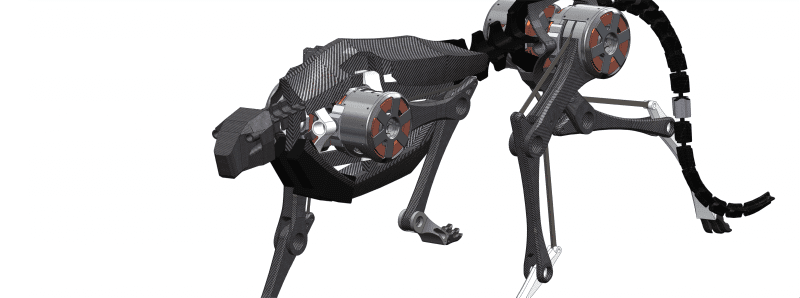MIT Develops Robot Cheetah
According to a report from My Science Academy, MIT recently designed a robotic cheetah that can run and jump autonomously and clear hurdles, reaching speeds of up to 10 mph. The research team, led by Sangbae Kim, an associate professor of mechanical engineering at MIT, devised an algorithm that enables the robotic feline to bound along. It functions because each of the robot’s legs is programmed to exert a specific amount of force in the precise second that each of its feet hit the ground. The bot has a sleek design comprised of a complex assemblage of gears, four legs, electric motors and batteries. All included, it weighs about as much as its real-life counterpart. The MIT team claims that with a few tweaks, they could get this model running at speeds of up to 30 mph.
Samsung Gear Takes Virtual Reality on the Move
The Motley Fool reports that Samsung is about ready to release the Gear VR, a virtual reality (VR) system that runs on a mobile phone — the Galaxy Note 4. This could take mobile gaming to a whole new level. The VR system is comprised of a sleek visor with a docking slot for the Note 4 or Edge. The VR device is equipped with a stereoscopic 3D display, head-tracking sensors, and an external touchpad, enabling the user to transform his or her mobile phone into a VR headset for Android apps and games. So far, Samsung has announced 16 games for the new device, including Omega Agent and Temple Run VR.
World’s First 3D Printed Car
The futuristic-looking car, made using a 3D printer, took only 44 hours to make, has only 40 parts and costs under $18,000 to manufacture, according to a report in the U.K.’s Daily Mail. The Strati was designed by Arizona-based Local Motors. It has a top speed of 40 mph and a battery life of 120 to 150 miles. The car’s chassis and body were created using an extra large 3D printer, while the wheels, tires, seats, battery, suspension, electric motor, wiring and windscreen were made using more conventional methods. The 3D printer, developed by Cincinnati Inc., is able to produce parts as large as 3 feet by 5 feet by 10 feet.
Image Credit: News.Sciencemag.org



















